Your cart is currently empty!
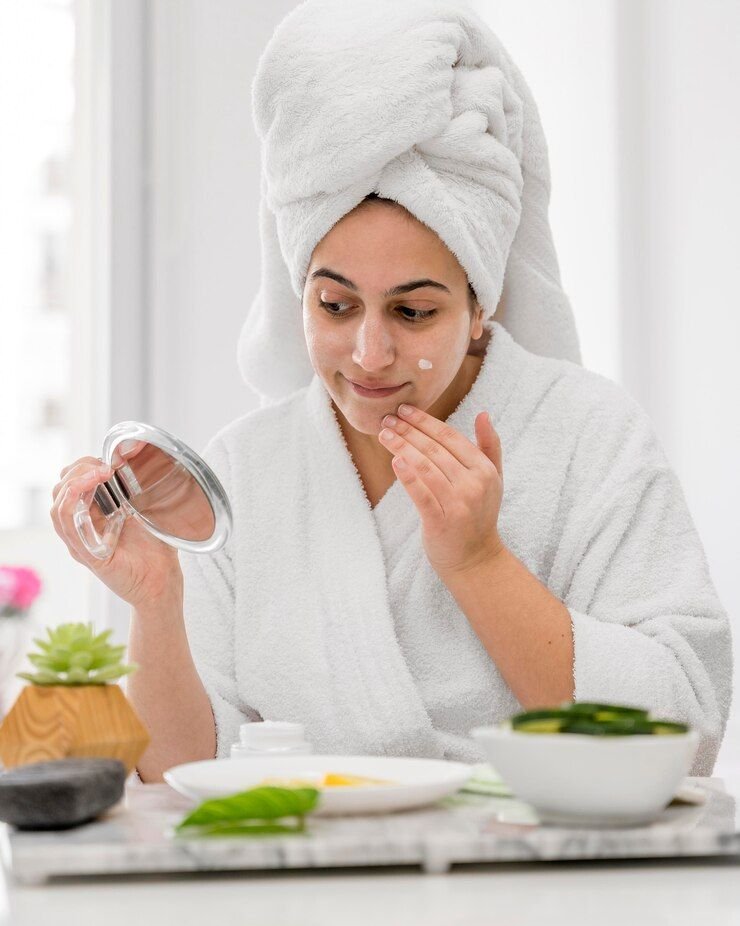
8 DIY Ingredients That May Harm Your Skin

Table of Contents
The perilous world of DIY skincare, where seemingly harm ingredients can stealthily sabotage your skin’s health. Despite good intentions, certain DIY concoctions harbor ingredients that may harm your delicate skin. From abrasive exfoliates like ground walnut shells causing micro-tears to acidic lemon juice leading to irritation and photo sensitivity, the risks abound. Even seemingly innocuous ingredients like essential oils can trigger allergic reactions or exacerbate skin conditions. Vigilance is paramount when crafting DIY skincare, as the quest for beauty shouldn’t compromise skin safety. Let’s uncover the hidden dangers lurking within our homemade potions and prioritize skin health above all else.Here are 8 DIY ingredients that may harm your skin:
Lemon Juice Harm Your Skin
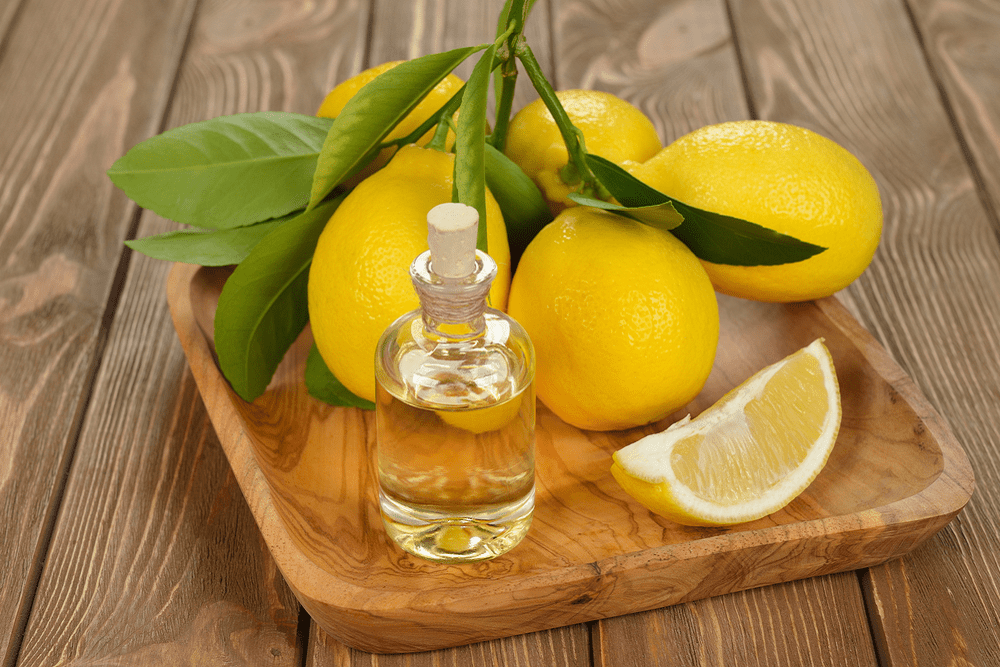
Lemon juice, extracted from the citrus fruit lemon (Citrus limon), is a popular natural ingredient known for its acidic and astringent properties. Rich in vitamin C and citric acid, lemon juice offers a range of potential benefits for both culinary and cosmetic purposes. In cooking, it adds a tangy flavor to dishes and can be used in marinades, dressings, desserts, and beverages.
In skincare, lemon juice is often touted for its supposed ability to brighten the complexion, lighten dark spots, and treat acne due to its acidic nature. However, caution is warranted when using lemon juice topically. Its high acidity can disrupt the skin’s pH balance, leading to irritation, dryness, and increased sensitivity to sunlight. Direct application of undiluted lemon juice on the skin can cause stinging, burning sensations, and even chemical burns, particularly in individuals with sensitive skin.
Moreover, lemon juice can increase photo-sensitivity, making the skin more susceptible to sun damage and pigmentation issues when exposed to ultraviolet (UV) radiation. Therefore, it’s essential to dilute lemon juice before applying it to the skin and to use sunscreen when going outdoors.
While lemon juice can offer benefits when used appropriately and in moderation, it’s crucial to be mindful of its potential risks and to consult a dermatologist before incorporating it into your skincare routine.
Baking soda
Baking soda, scientifically known as sodium bicarbonate, is a versatile household ingredient with a wide range of uses. Chemically, it is a white crystalline powder that is slightly alkaline, with a pH of around 9. When dissolved in water, baking soda produces carbon dioxide gas, which makes it useful for various applications beyond baking.
In skincare, baking soda is often touted as a natural exfoliant and cleanser due to its abrasive texture and mild alkalinity. However, its effectiveness in skincare is controversial, as it can disrupt the skin’s natural pH balance, leading to irritation, dryness, and even microtears in the skin’s surface. While some people may find baking soda beneficial for treating acne or removing dead skin cells, others experience adverse reactions, especially those with sensitive skin.
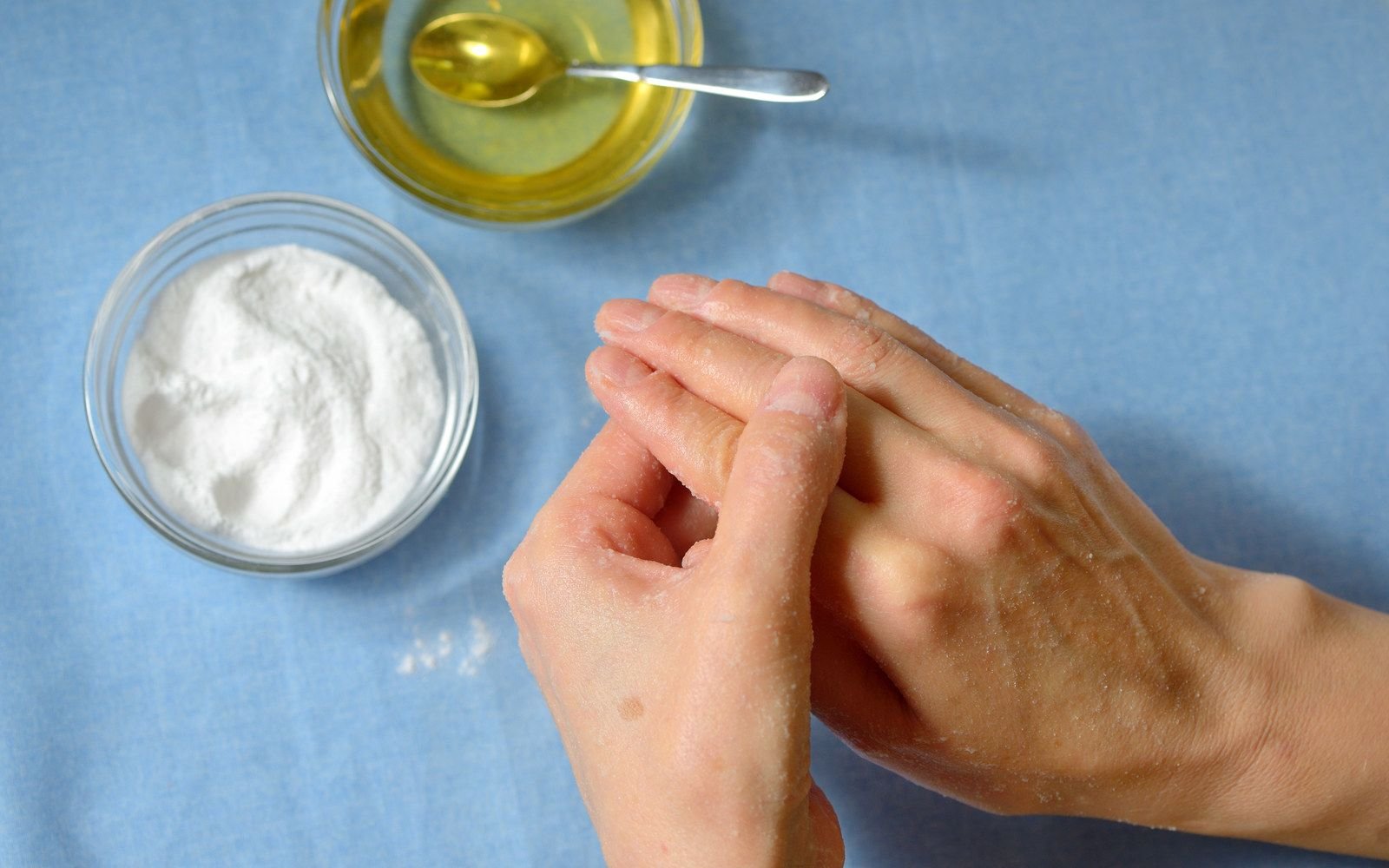
Outside of skincare, baking soda has numerous other uses. It’s commonly used as a leavening agent in baking, helping dough rise by releasing carbon dioxide when mixed with acidic ingredients. It’s also employed as a household cleaner, deodorizer, and even as a remedy for heartburn when mixed with water and consumed.
Overall, while baking soda has its uses, especially in culinary and household applications, caution is warranted when using it on the skin due to its potential to cause irritation and disrupt the skin’s delicate balance.
Toothpaste
Toothpaste, a staple in oral hygiene, is a paste or gel used to clean teeth and maintain oral health. Comprising various ingredients tailored to combat plaque, bacteria, and bad breath, toothpaste plays a vital role in preventing dental issues such as cavities, gum disease, and tooth sensitivity.
Typically, toothpaste contains abrasives like calcium carbonate or silica, which aid in removing surface stains and plaque buildup without harming the enamel. Fluoride, a key ingredient, strengthens tooth enamel and helps prevent tooth decay by remineralizing weakened areas. Additionally, antibacterial agents like triclosan or essential oils target harmful bacteria in the mouth, reducing the risk of gum disease and bad breath.
Toothpaste often features flavoring agents such as mint or fruit extracts, enhancing the taste and freshness of the mouth after brushing. Some formulations include desensitizing agents like potassium nitrate to alleviate tooth sensitivity.
With a wide range of formulations catering to various oral health needs, toothpaste continues to evolve with advancements in dental science and consumer preferences. Regular use of toothpaste, coupled with proper brushing technique and routine dental check-ups, is essential for maintaining a healthy and radiant smile.
Cinnamon
Cinnamon, a popular spice known for its warm, aromatic flavor, may seem harmless in culinary use, but when applied to the skin, it can pose risks. Cinnamon contains compounds like cinnamaldehyde, which can be irritating and potentially harm full to the skin, especially in high concentrations. When applied topically, cinnamon can cause burning, redness, itching, and even allergic reactions in sensitive individuals.
One of the main concerns with cinnamon is its potential to cause irritation and sensitization. Its abrasive texture and potent compounds can disrupt the skin’s barrier function, leading to inflammation and discomfort. Moreover, cinnamon’s warming properties can exacerbate these effects, intensifying the sensation of burning or stinging on the skin.
Additionally, cinnamon can increase skin sensitivity to sunlight, making it more susceptible to damage from UV radiation. This photosensitizing effect can result in sunburns, hyperpigmentation, and other forms of sun damage if cinnamon-treated skin is exposed to sunlight without adequate protection.
Overall, while cinnamon may have some benefits in skincare due to its antimicrobial and antioxidant properties, its potential to irritate and sensitize the skin outweighs its usefulness. It’s crucial to exercise caution when using cinnamon in DIY skincare preparations and to perform a patch test before applying it to larger areas of skin. Consulting with a dermatologist is advisable, especially for individuals with sensitive or reactive skin.

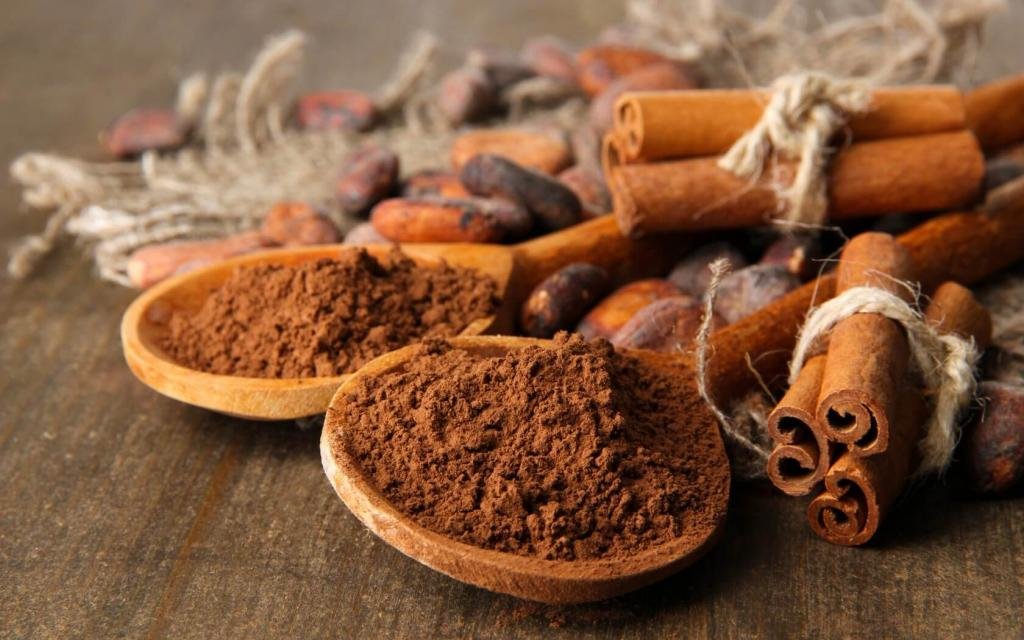
Garlic
Garlic, commonly celebrated for its culinary and potential health benefits, can present risks when applied directly to the skin. Raw garlic contains compounds such as allicin, which can be potent and irritating to the skin, particularly for those with sensitive skin or existing skin conditions.
When applied topically, raw garlic can cause various adverse reactions, ranging from mild irritation to more severe burns. Its potent nature can lead to redness, itching, burning sensations, and even blistering in some cases. These effects are often exacerbated when garlic is applied in high concentrations or for extended periods.

Furthermore, garlic’s strong odor can linger on the skin, causing discomfort for some individuals. In addition to its potential for irritation, raw garlic may also interact with medications or exacerbate certain skin conditions, such as eczema or dermatitis.
Given these risks, it’s crucial to exercise caution when considering the use of garlic in DIY skincare routines. Patch testing on a small area of skin can help assess individual sensitivity, and dilution with a carrier oil or other ingredients may reduce its potency. However, for many people, it’s advisable to avoid direct application of raw garlic to the skin and opt for gentler, clinically tested skin care products instead. Consulting with a dermatologist can provide personalized guidance and ensure the safety of your skincare regimen.
Rubbing alcohol
Rubbing alcohol, commonly known as isopropyl alcohol, can have harmful effects on the skin when used improperly. While it’s widely used as a disinfectant and antiseptic, its high potency can lead to various adverse reactions. Rubbing alcohol is a solvent, meaning it can strip away the skin’s natural oils and moisture, leading to dryness, irritation, and even cracks or fissures in the skin’s barrier. This can exacerbate existing skin conditions like eczema or psoriasis and compromise the skin’s ability to protect against pathogens and environmental stressors.
Moreover, rubbing alcohol is highly volatile, evaporating quickly upon contact with the skin. This rapid evaporation can cause a cooling sensation, but it also draws moisture away from the skin, further contributing to dryness and potential irritation. Prolonged or frequent use of rubbing alcohol on the skin can disrupt its delicate balance, resulting in redness, inflammation, and a compromised skin barrier.
Additionally, rubbing alcohol can be especially harsh on sensitive or damaged skin, leading to stinging, burning, or allergic reactions in some individuals. It’s important to use rubbing alcohol sparingly and with caution, especially on delicate areas of the skin, and to moisturize thoroughly after use to help replenish lost moisture and restore the skin’s protective barrier.
Citrus oils, such as bergamot and grapefruit, are popular in skincare due to their refreshing scent and purported benefits. However, they can pose risks to the skin. These oils contain compounds like psoralens and furanocoumarins, which make the skin more sensitive to sunlight, a phenomenon known as phototoxicity.
Citrus oils (e.g., bergamot, grapefruit)
When applied topically and exposed to sunlight, citrus oils can cause phototoxic reactions, including redness, burning, blistering, and discoloration of the skin, akin to severe sunburn. This heightened sensitivity can lead to long-lasting damage, such as hyperpigmentation or increased susceptibility to UV-induced aging and skin cancer.

Furthermore, citrus oils may irritate sensitive skin and exacerbate existing conditions like eczema or dermatitis. Their acidic nature can disrupt the skin’s natural pH balance, leading to dryness, irritation, or even chemical burns, particularly when used in high concentrations or on compromised skin barriers.
Despite their potential benefits, citrus oils should be used with caution in skincare formulations. It’s crucial to dilute them properly and avoid application before sun exposure to minimize the risk of phototoxic reactions. Patch-testing on a small area of skin is advisable, and individuals with sensitive skin or a history of sun sensitivity should exercise extra caution or consult a dermatologist before using products containing citrus oils.
Stinging nettle
Stinging nettle, despite its potential health benefits when consumed or used in certain preparations, can pose risks to the skin due to its irritating properties. The stinging nettle plant contains tiny hairs on its leaves and stems that release chemicals, including histamine and formic acid, upon contact with the skin. These chemicals can cause a stinging or burning sensation, along with redness, itching, and sometimes even a rash or hives.
The reaction to stinging nettle can vary from person to person, with some individuals experiencing mild discomfort and others developing more severe symptoms. Those with sensitive skin or a history of allergies may be particularly prone to adverse reactions.
Although stinging nettle is sometimes used topically for conditions like arthritis or eczema, its potential for causing skin irritation means it should be approached with caution. It’s crucial to handle the plant carefully and wear protective clothing when working with it, such as gloves, to avoid direct contact with the skin. Additionally, if stinging nettle comes into contact with the skin, washing the affected area with soap and water and applying a soothing, anti-itch cream may help alleviate symptoms. Overall, while stinging nettle has its uses, its potential to harm the skin underscores the importance of using it judiciously and with appropriate precautions.
Conclusion
When considering DIY skincare, it’s crucial to recognize ingredients that may harm rather than help your skin. Common culprits like lemon juice, baking soda, and essential oils can cause irritation, sensitivity, or even chemical burns. Abrasive materials such as sugar or salt can damage delicate skin, leading to micro-tears. Additionally, substances like vinegar or toothpaste disrupt the skin’s pH balance, exacerbating issues like acne or dryness. Prioritize research and caution when experimenting with DIY skincare, opting for gentler, well-researched alternatives to ensure your skin’s health and safety.


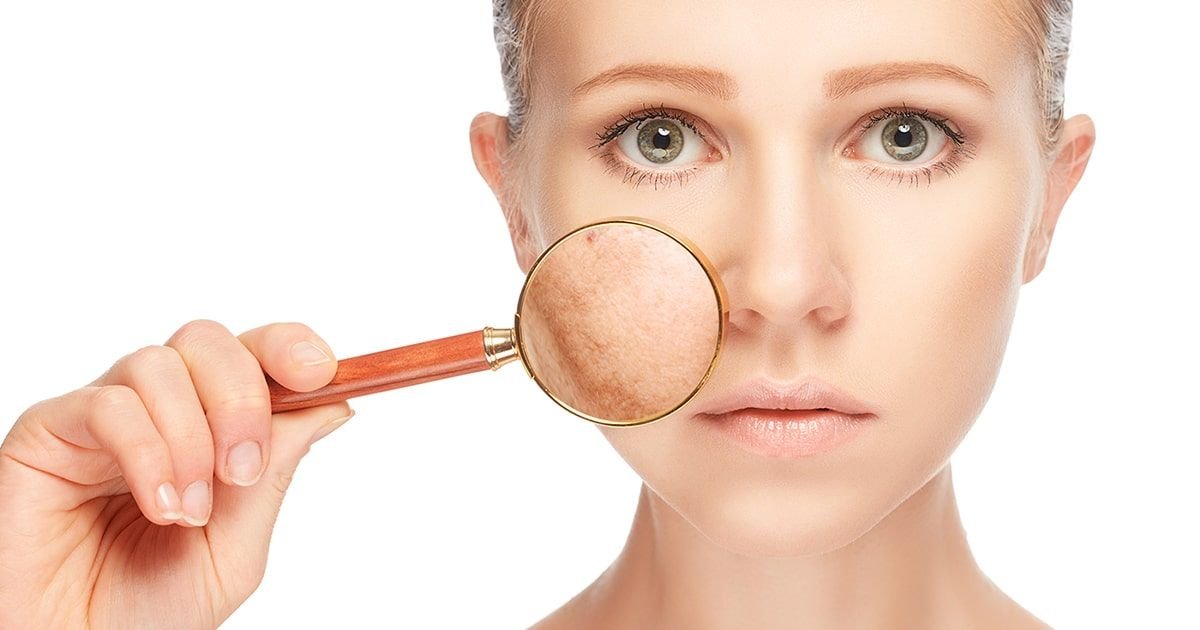

Leave a Reply